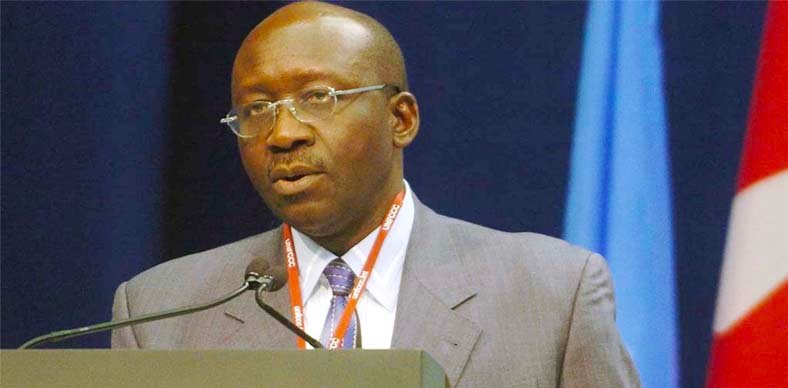
The Peoples Democratic Party rejected the Federal High Court judgment deleting Section 84(10) of the Electoral Act.
The PDP also said it was exploring the option of reporting the Attorney-General of the Federation, Abubakar Malami; and Justice Evelyn Anyadike of the Federal High Court in Umuahia, to the Nigerian Bar Association and the National Judicial Council respectively.
Section 84(10) of the Act makes it compulsory for all political appointees planning to run for office to resign at least 30 days before any primaries they plan to take part in. The section also states that political appointees would not be allowed to vote in any primaries.
Malami, who is believed to be eyeing the Kebbi State governorship seat, had rejected the provision, insisting that he would not resign. A member of Action Alliance, Nduka Edede, subsequently filed a suit before the court challenging the section. Malami, who was the only defendant in the suit, agreed with the plaintiff thus securing a favourable judgment.
The AGF subsequently issued a statement commending the court for the judgment. He also promised to swiftly gazette the judgement.
In his reaction, the National Publicity Secretary of the PDP, Mr Debo Ologunagba, told our correspondent in an interview on Saturday that Malami had abused his office by placing his personal interest ahead of that of the public.
Ologunagba also wondered how the case, which was instituted barely a week ago, was swiftly heard and judgment was delivered. He said the intention of the plaintiff was suspicious as he neither joined the National Assembly nor the Independent National Electoral Commission.
The PDP spokesman stated, “The basis for this order is curious. We see it as an ambush instigated by the office of the AGF and it shows the irresponsibility of the holder of that office. Number one, the job of the AGF is to defend the constitution which he swore to do.”
He added, “Who is the plaintiff in this matter? What is his personal interest? Why were the necessary parties like the National Assembly, which made the law, and INEC, which ought to implement this provision, not joined in this suit? That is why we cannot look beyond the AGF who is planning to participate in the elections.”
The PDP spokesman wondered why Malami, who is not always keen on obeying court judgements, was seeking to implement this particular order immediately.
Ologunagba added that the PDP was looking into the matter with a view to taking action against Malami and the judge that delivered the judgment.
On whether petitions would be written to the NJC or the NBA, he said, “All options are on the table. Nothing will be left out. We will study it and take necessary decisions to protect our democracy and ensure that this recklessness by people in office does not stand. That is what we are going to do. All the options will be taken and if there are necessary actions, we will take them.”
Human rights activist, Mr Ebun-Olu Adegboruwa (SAN), also encouraged political parties and others to challenge the judgment.
Adegboruwa in a statement on Saturday said, “The Electoral Act is an act of the National Assembly. How can you ‘nullify’ an Act without joining the institution that made the Act, so that they can be heard concerning what they did?
“When a defendant (Federal Government) rejoices over a judgment delivered against it as a party, then you know there is a problem in Nigeria. Let the National Assembly, the political parties and NGOs appeal against the judgment as interested parties.
“Why do you want to hold on to your office as a political appointee and at the same time be a candidate in an election?”
Another lawyer, Mr Kayode Ajulo, said in a statement that the court erred by assuming that public officers as stated in the constitution and appointees were all the same.
He said INEC and the National Assembly should appeal the matter quickly.
“It is quite glaring that the tale of the future of the provision of Section 84 (12) of the Electoral Act is not that of an unrivalled woe, the National Assembly and INEC have a right to challenge the decision of the trial court as same is likely to set aside on appeal,” Ajulo said.
The lawyer advised the All Progressives Congress not to allow appointees to take part in its forthcoming conventions as it could mar the exercise if the Court of Appeal upturns the judgment.
Another Senior Advocate of Nigeria, Robert Emukpoeruo, has faulted the judgment of the Federal High Court saying the Section 84 (12) was a unique provision that political appointees should not vote or be voted for at any congress or convention to nominate candidates of a political party.
Emukpoeruo stated, “The section provides that ‘The National Assembly may by law provide guidelines and rules to ensure internal democracy within political parties, including making laws for the conduct of party primaries, party congresses and party conventions.’”
According to him, this clearly showed that Section 84(12) of the Electoral Act, 2022 was made consistently with and pursuant to the provision of Section 228(a) of the constitution.
Emukpoeruo said, “A juxtaposition of Section 84 (12) of the Electoral Act, 2022, Section 228 (a) of the constitution on the one hand with other provisions of the constitution dealing with qualifications and disqualification to contest election will reveal that they deal with different subject matters. Put bluntly, a political appointee is not (and cannot be) a person employed in the public service of the federation or of the state. There is a sharp difference between a public servant and a public officer.
“There is no law until the coming into being of Section 84 (12) of the Electoral Act, which regulated political appointees’ participation in congresses or convention for the nomination of party candidates. And to this extent, that subsection cannot rationally be held to be inconsistent with the provisions of the constitution.”
Copyright PUNCH.
All rights reserved. This material, and other digital content on this website, may not be reproduced, published, broadcast, rewritten or redistributed in whole or in part without prior express written permission from PUNCH.
Contact: [email protected]





